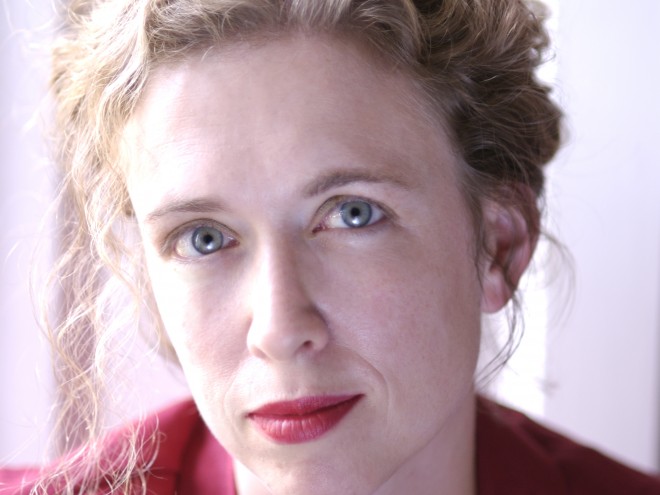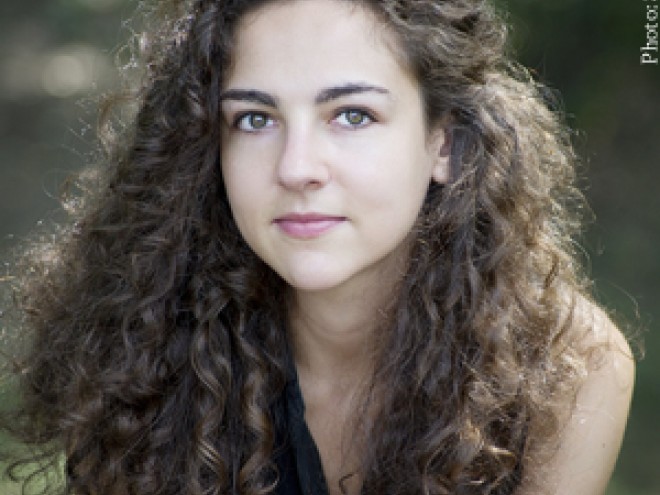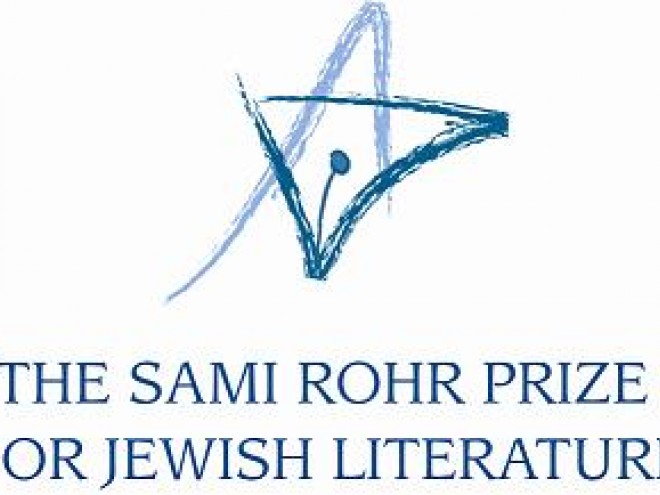Posted by Naomi Firestone-Teeter
 Last week, Ben Lerner expressed his desire for readers to be active participants in the construction of what a poem or novel means. Today we hear from Sami Rohr Prize finalist Francesca Segal, author of the 2012 National Jewish Book Award winning novel The Innocents. The National Jewish Book Award judges wrote:
Last week, Ben Lerner expressed his desire for readers to be active participants in the construction of what a poem or novel means. Today we hear from Sami Rohr Prize finalist Francesca Segal, author of the 2012 National Jewish Book Award winning novel The Innocents. The National Jewish Book Award judges wrote:
Edith Wharton’s novels were at once penetrating sociology and bestselling stories, and so it’s no accident that Francesca Segal’s The Innocents, modeled on Wharton’s The Age of Innocence, can dissect a community’s behaviors and beliefs nimbly while telling a charming page-turning tale. Set among traditional but not exactly Orthodox Jewish Londoners, and peppered with precise details of the way some of us live now, the novel sets up a romantic triangle — a good girl, a good boy who wants to be bad, and a “bad“girl, tinged with scandal — demonstrating that the old tension between community and individual that engendered modern Jewish literature over a century ago is still alive and well, at least in certain neighborhoods. What power do our communities possess to keep the young in the fold, and at what price do they wield it? Segal manages to expose a signal truth of contemporary Jewish life with warmth and wit.
Below, Francesca Segal writes about her need for peace and quiet and her desire to keep learning:
What are some of the most challenging things about writing fiction?
The lack of immediate feedback can be hard – one has to sit on the impulse to show one’s work too early. It’s vital to have the space and quiet in order to be creative, and I’m a firm believer in finishing a complete first draft before letting anyone else near it, but it can be hard if you need a little reassurance.
What or who has been your inspiration for writing fiction?
Reading fiction. There are so many writers who have altered my perspective, subtle shifts that have stayed with me, and to whom I owe whatever wisdom I possess.
Who is your intended audience?
I don’t write with an audience in mind – if I allowed myself to imagine that anyone would read what I write, I would be too self-conscious to produce anything. I have to believe it will go no further than my own desk, and with that comes a little liberation.
Are you working on anything new right now?
Yes, I’m at the beginning of the next novel. It’s exciting and (extremely) nerve-wracking.
What are you reading now?
I’m reading A Visit from the Goon Squad by Jennifer Egan, The People of Forever Are Not Afraid by Shani Boianjui, and The Free World by David Bezmozgis. I like to have a few on the go at once.
Top 5 Favorite Books
This is almost impossible so I’ve stayed relatively contemporary but –
- Midnight’s Children by Salman Rushdie
- Fugitive Pieces by Anne Michaels
- Call It Sleep by Henry Roth
- Howard’s End by E. M. Forster
- Still Life by A. S. Byatt
When did you decide to be a writer?
I don’t remember ever wanting to be anything else.
What is the mountaintop for you — how do you define success?
All I’ve ever wanted is the opportunity to keep writing, to keep learning, to keep getting better. Success for me is the chance to publish my second book, and then hopefully a third and forth. It’s such an unstable job –my definition of success is to earn the trust of a readership in the hopes that they will stay with you.
 How do you write — what is your private modus operandi? What talismans, rituals, props do you use to assist you?
How do you write — what is your private modus operandi? What talismans, rituals, props do you use to assist you?
All I really need is peace and quiet – although that’s sometimes quite a tall order. I used to write in cafes when I needed to get out of my apartment, until I read a wonderful interview with Etgar Keret, who I admire hugely, saying that he thinks we become more self-conscious in social spaces and that it makes writers more self-conscious in their prose. I believe that. So now I just battle the cabin fever at home. That, and a great deal of caffeine.
What do you want readers to get out of your book?
I hope that it prompts readers to ask questions – about community, about family, about marriage. And I don’t think it’s trivializing to say that books should give pleasure, so I do hope that readers enjoy the novel, and that it feels emotionally honest.
Francesca Segal was born in London in 1980. Brought up between the UK and America, she studied at St Hugh’s College, Oxford, before becoming a journalist and writer. Her work has appeared in Granta, Newsweek, the Guardian, the Financial Times, and Vogue UK and US, amongst many others. She has been a features writer at Tatler, and for three years wrote the Debut Fiction column in the Observer.Originally from Lancaster, Pennsylvania, Naomi is the CEO of Jewish Book Council. She graduated from Emory University with degrees in English and Art History and, in addition, studied at University College London. Prior to her role as executive director and now CEO, Naomi served as the founding editor of the JBC website and blog and managing editor of Jewish Book World. In addition, she has overseen JBC’s digital initiatives, and also developed the JBC’s Visiting Scribe series and Unpacking the Book: Jewish Writers in Conversation.


